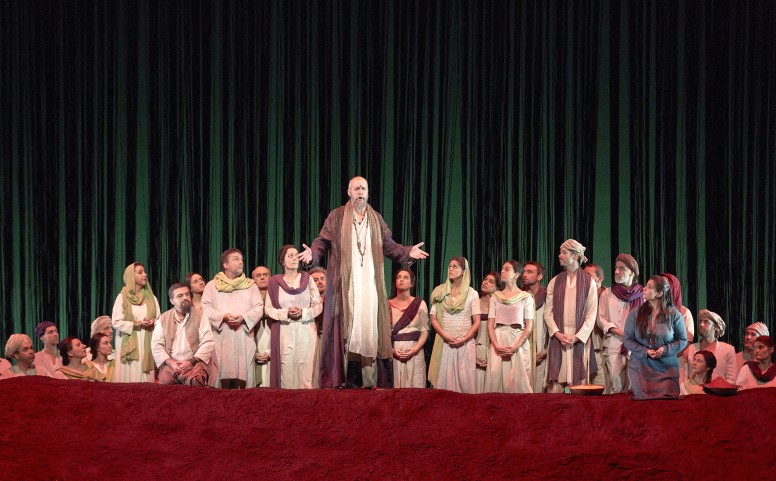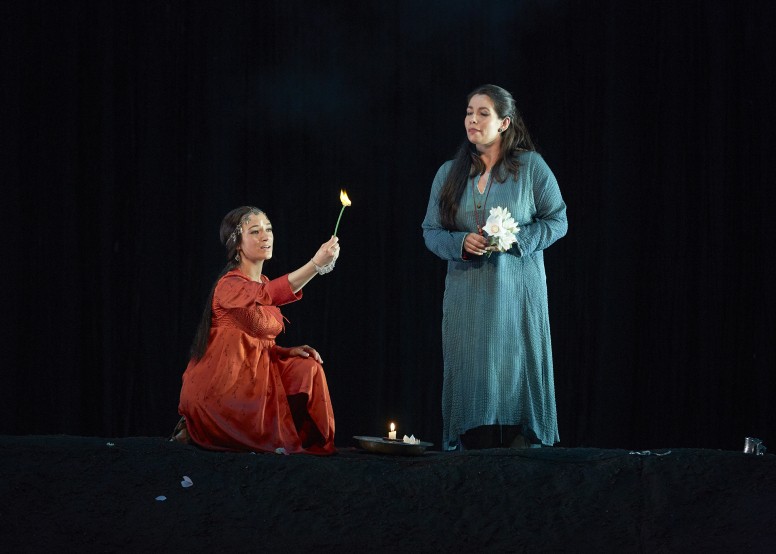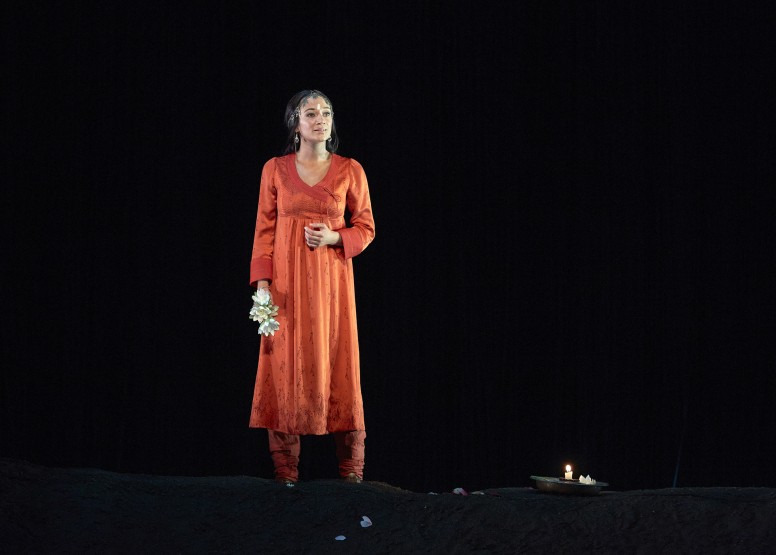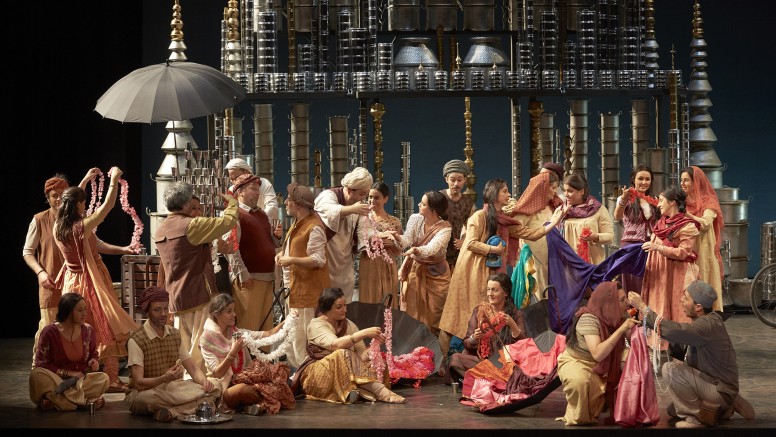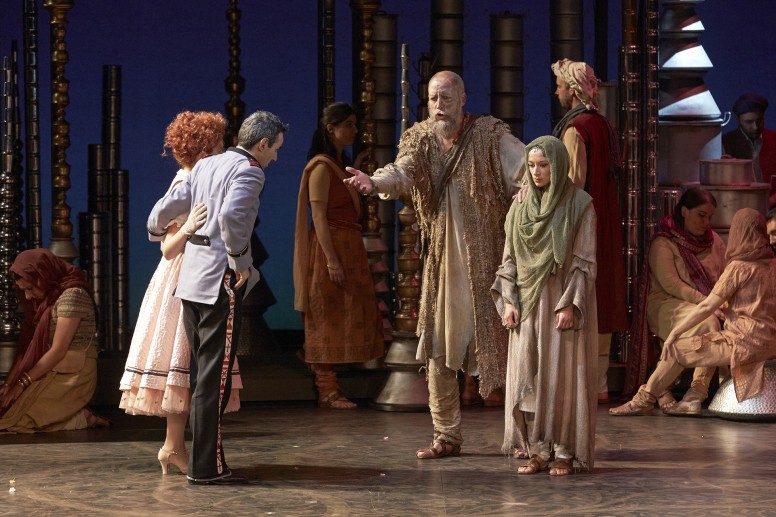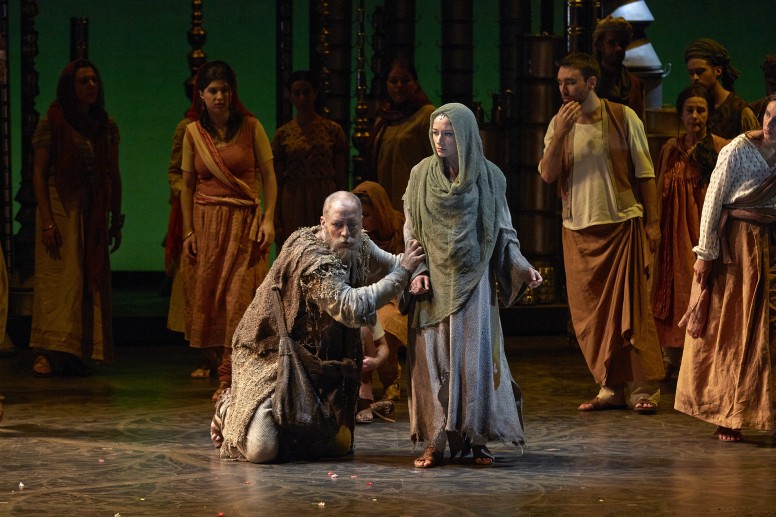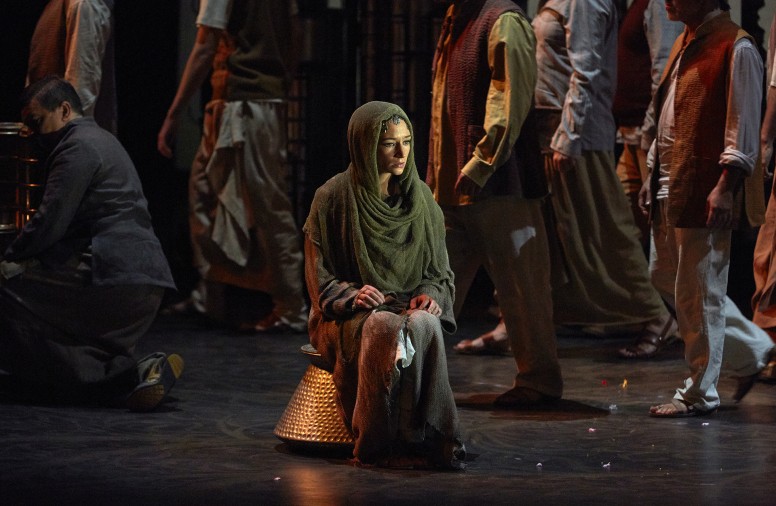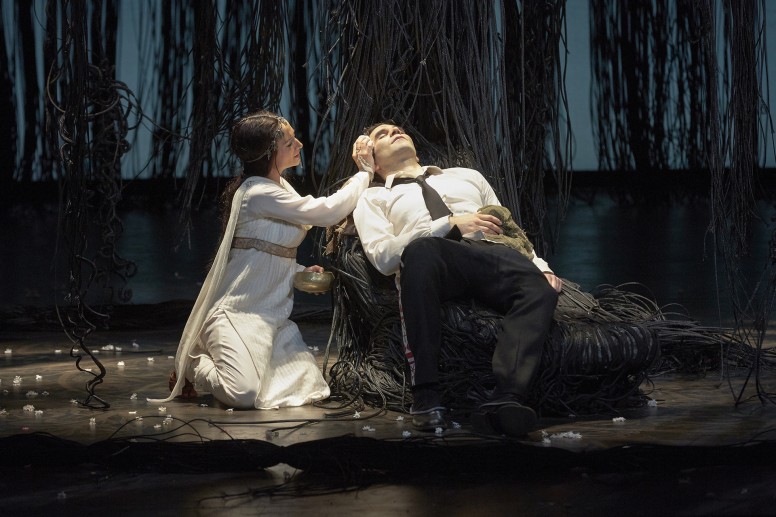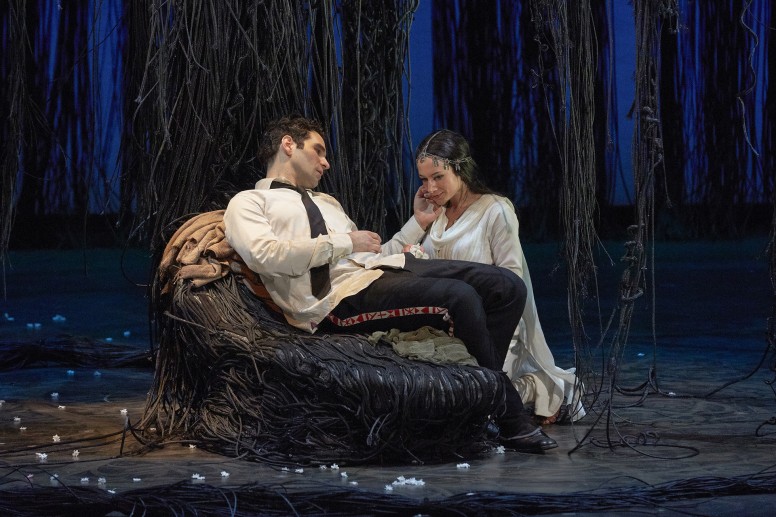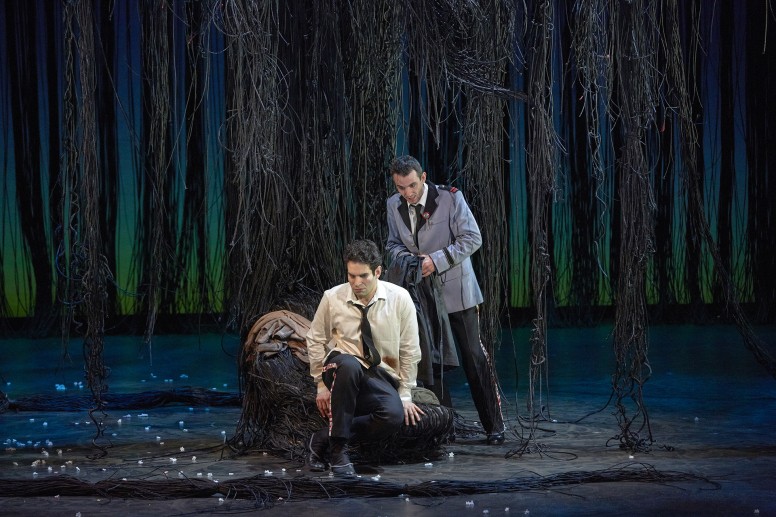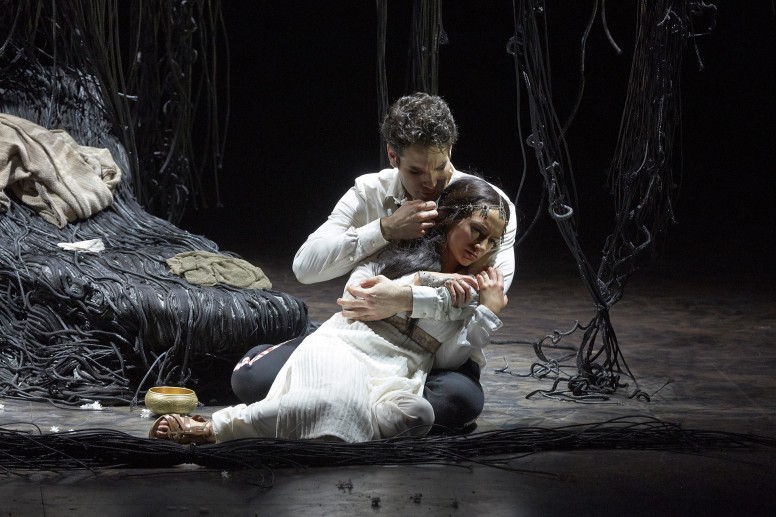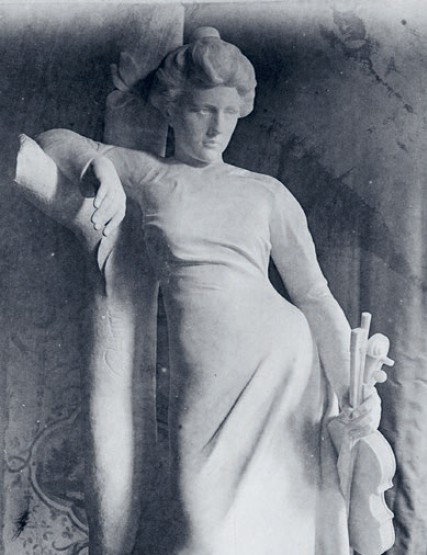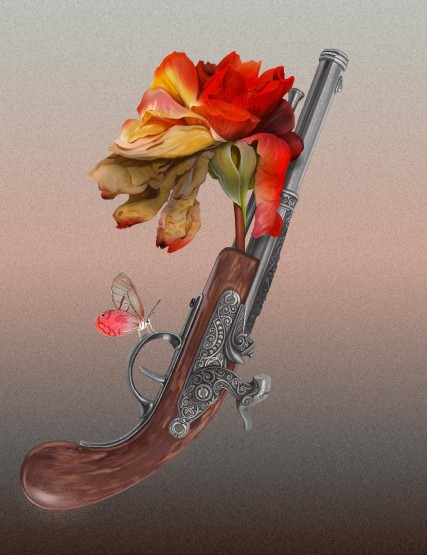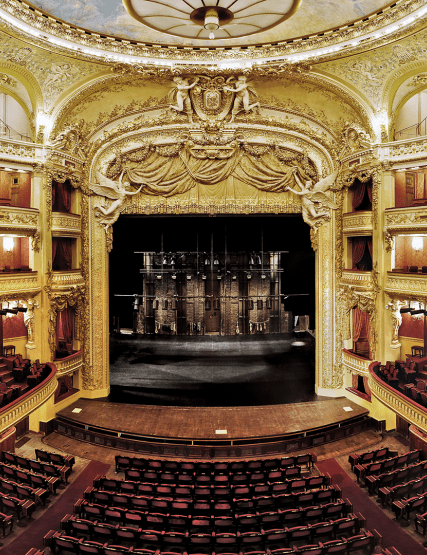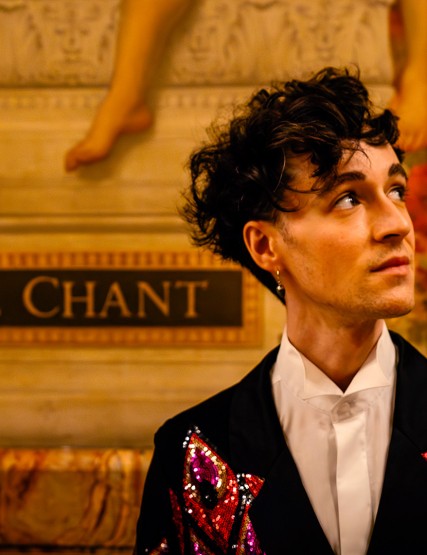Opera in 3 acts. Libretto by Gondinet and Philippe Gille. Premiered on 14 april 1883 at the Opéra Comique.
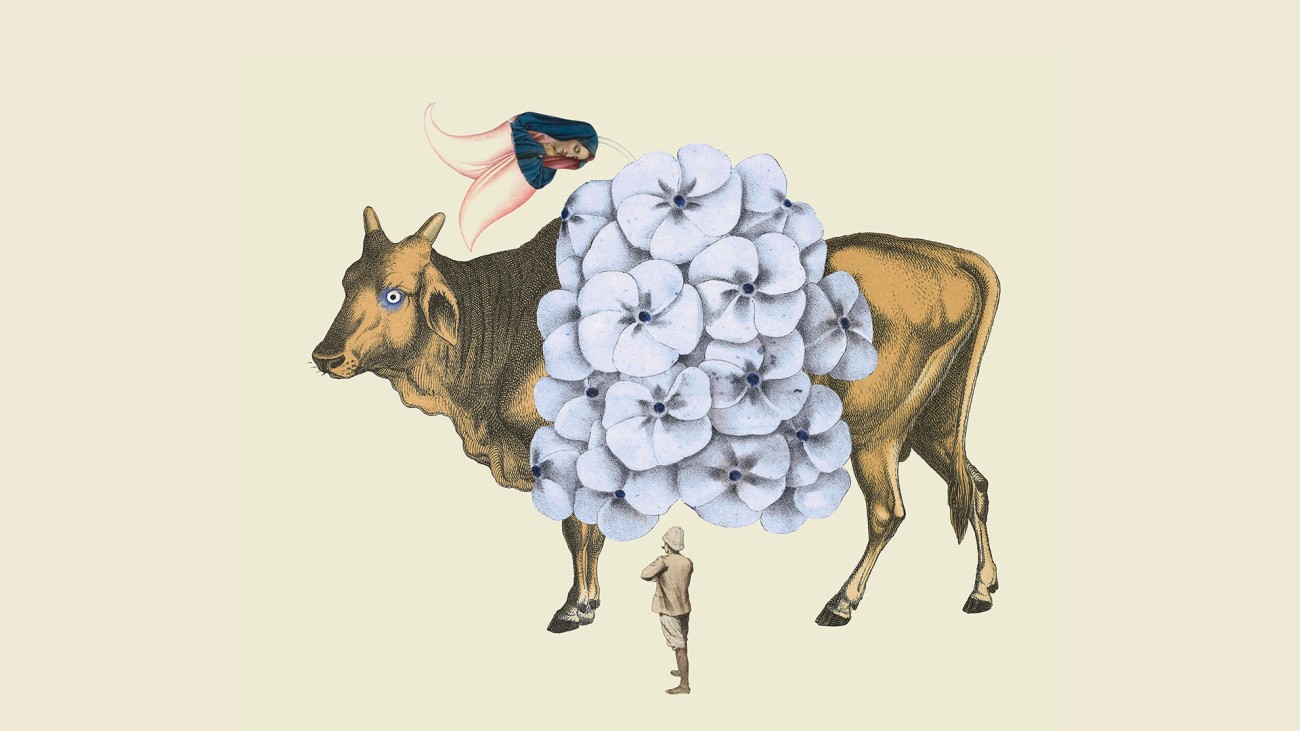
Composed for two stars of the Opéra Comique, the soprano Marie van Zandt and the tenor Talazac, Lakmé utilizes the most efficient forces of orientalist opera: as with David and Massenet, a musical reverie on a remote civilization; as with Bizet, the confrontation between religious fanaticism and exacerbated sensuality; as with Meyerbeer, the passion of two lovers from different cultures.
In a lush background that combines wild nature and popular festivities, the encounter of a Brahman’s daughter and a British officer rekindles the tensions between communities in British India.
Inspired by Pierre Loti, Léo Delibes transcends conventions through the truthfulness of his characters, the poetry of each scene and the importance of political questioning. On its first performance, the opera enjoyed sweeping success that soon spread abroad in spite of or thanks to the heroine’s death. One hundred and forty years later, Lakmé has already been performed 1500 times at the Salle Favart.
Performance duration : 2h50 with an interval
France Musique will broadcast Lakmé live on the 18th january 2014.
Act 1
British India, second half of the 19th century.
In Brahmin Nilakantha's garden, Hindus are gathered for the ritual prayer to Brahma. Their fervor comforts the Brahmin priest whose spiritual prestige is threatened by the occupying British. He has made his daughter Lakmé, raised in the purest faith, the interpreter of divine will and an idol for the dominated people.
Lakmé and her attendant Mallika feel secure within the temple's enclosure. Yet, as soon as they go in search of lotuses, a group of English burst in through the fence. They are two young women, Ellen and Rose, with their governess, Miss Bentson, and two officers. Frédéric, cautious and aware of the gap between the two communities, speaks of Nilakantha and Lakmé. The latter's beauty gives rise to a hot debate about the image of women in Europe and the Orient, then about the various forms of love. The conclusion is that all Indians are idealistic and entirely absorbed in their passions. Somewhat frightened, the women want to leave but Rose sees magnificent jewels. Gérald offers to make a drawing of them so that she can wear them for their wedding.
Left alone, the officer is overcome by the charm of the place and realizes he has desecrated sacred objects. On her return, while unsettled for the first time by nature's call, Lakmé encounters the sacrilegious Englishman. She is about to drive him away but Gérald's emotion touches her. Love springs instantly despite all that which separates them. Gérald flees as Nilakantha appears and calls the Hindus to avenge dishonor.
Act 2
After the march of a regiment of British fifers, the market opens at the town's square. Lost among merchants, Miss Bentson meets the other Britons again with relief. Frédéric understands that Gérald is disturbed by Lakmé, and Rose that the officers' departure for intervention is imminent. They attend three dances performed by bayaderes: a terana, a rektah, a persian.
In the audience are a Hindu penitent and a songstress, Nilakantha and Lakmé, now intent on revenge. Guessing that the garden intruder loves his daughter, Nilakantha forces Lakmé to sing. She reluctantly sings the Legend of the pariahs' daughter. Frédéric cannot prevent Gérald from revealing himself. With a group of conspirators, Nilakantha instigates Gérald's murder and sends Lakmé away by entrusting her to his servant Hadji.
Gérald manages to rejoin Lakmé who entreats him to convert to her religion so as to avoid punishment. Gérald is almost won over by her conviction. A procession of Brahmins and bayaderes go to the temple of the goddess Durga followed by a crowd of Hindus and curious British. Nilakantha overhears Gérald's confession to Frédéric and makes a sign to the conspirators to stab him. Left for dead, they abandon the young Englishman rescued by Lakmé who takes him to the forest with the help of Hadji.
Act 3
In the heart of the forest, Lakmé nurses Gérald, content to have him all for herself. They celebrate their happiness to be united, forgotten by their communities. Lakmé wishes to initiate Gérald to her gods and the rituals of lovers who unite at a sacred spring nearby. Reassured about his state, she fetches a cup of water for their union to be sealed.
But Frédéric finds Gérald and wakens him from his dream so that he can face his soldier's duty. Gérald promises to rejoin his regiment. On coming back, Lakmé senses his change of attitude. She requests an oath from him but Gérald is disturbed by the passing regiment afar.
Rather than renouncing her dream, Lakmé kills herself by eating a datura flower. Inflamed by her fortitude, Gérald drinks with her and takes a sincere but vain oath: death binds them. There is nothing Nilakantha can do for her and Gérald, who drank from the sacred cup, evades his vengeance. The Brahmin solemnizes the union of her daughter with the gods.
Music direction, François-Xavier Roth • Staging, Lilo Baur • With Sabine Devieilhe, Frédéric Antoun, Élodie Méchain, Paul Gay, Jean-Sébastien Bou, Marion Tassou, Roxane Chalard, Hanna Schaer, Antoine Normand, Laurent Deleuil, David, Lefort, Jean-Christophe Jacques • Choir, accentus • Orchestra, Les Siècles
See all the castFriday, January 10, 2014 - 8:00pm
Sunday, January 12, 2014 - 3:00pm (audio-description)
Tuesday, January 14, 2014 - 8:00pm
Thursday, January 16, 2014 - 8:00pm
Saturday, January 18, 2014 - 8:00pm
Monday, January 20, 2014 - 8:00pm (audio-description)
2:50 - Salle Favart
120, 95, 72, 41, 15, 6€
Some operas are available in audio description. "Image whisperers” are also available on demand.
More info on this page
Cast
























Dancers, Mai Ishiwata,Olia Lydaki, Anna Dimitratou
Figurants, Benoît Michaud, Tewfik Snoussi, Guillaume Toucas
Choir, accentus
Orchestra, Les Siècles
Co-production, Opéra Comique, Opéra de Lausanne
In partnership with, Palazzetto Bru Zane – Centre de musique romantique française
Partnership










